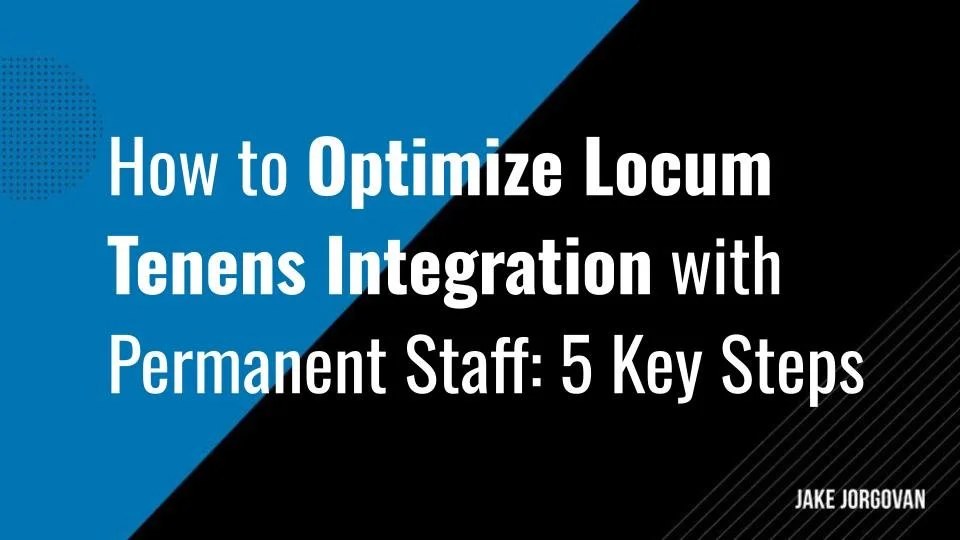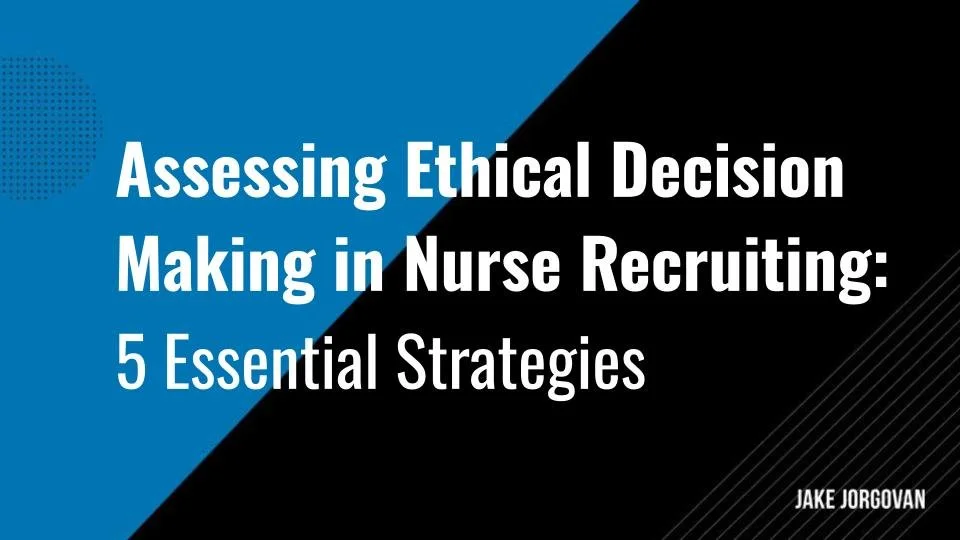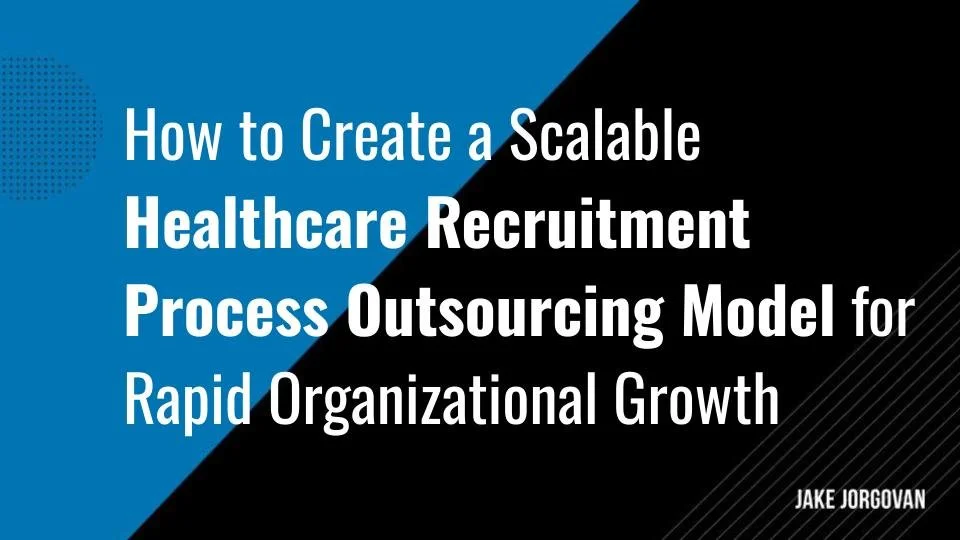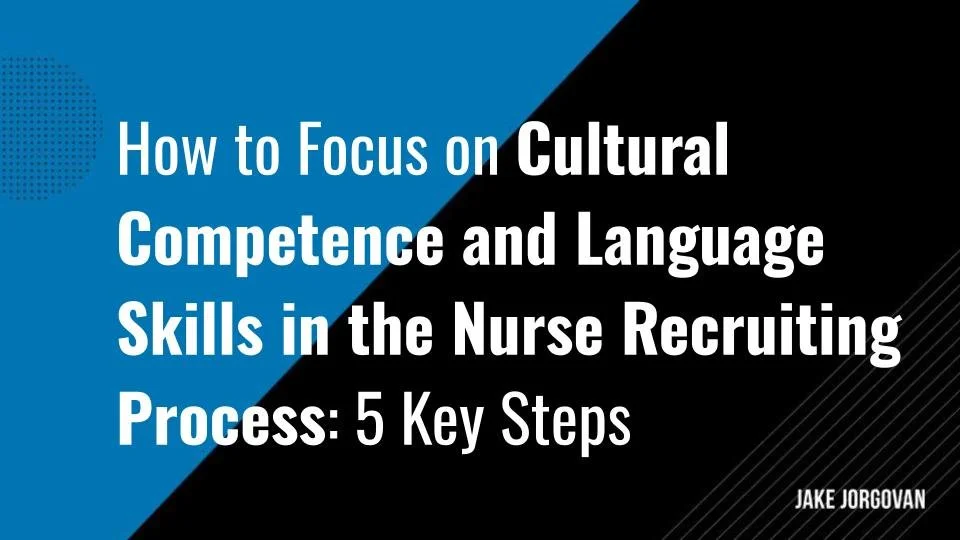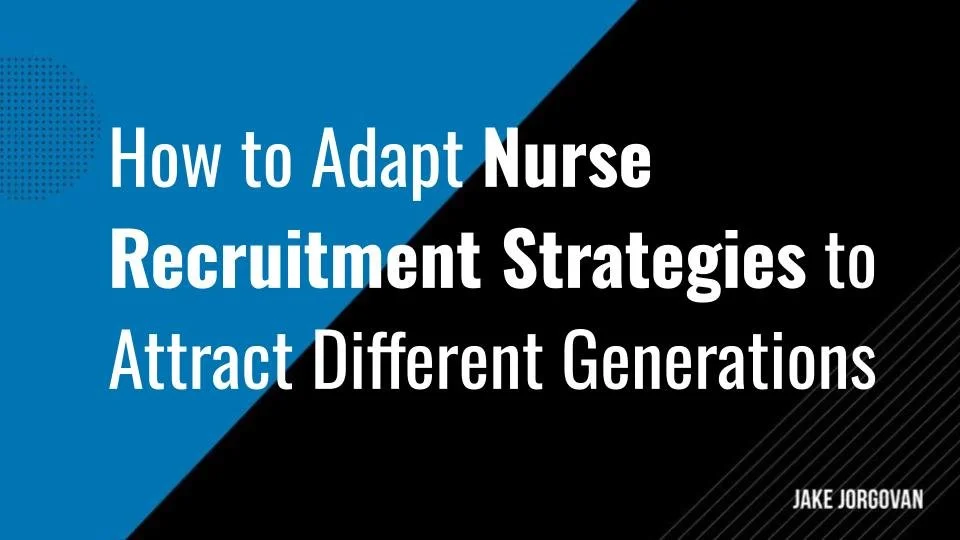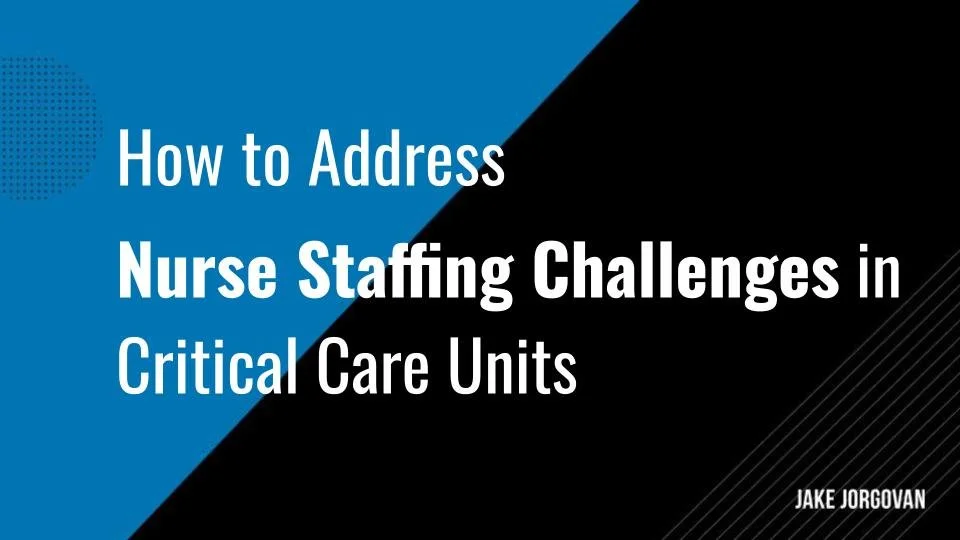How to Design Healthcare Recruitment Processes That Align with Value-Based Care Models
Value-based care is changing how we deliver healthcare and focuses on outcomes instead of volume.
However, recruitment processes often lag and are stuck in outdated models. Designing recruitment to match value-based care is crucial.
The right talent directly impacts patient outcomes, cost efficiency, and success.
This article will guide you in creating recruitment processes that truly support value-based care models.
Ready to dive into strategies that help your team deliver the quality and efficiency your patients deserve?
Let’s get started.
How Value-Based Care Impacts Healthcare Recruitment
Value-based care shifts your recruitment approach and emphasizes the need to select candidates aligned with patient-centered, outcome-focused care. This means prioritizing specific competencies.
You need to assess candidates for their ability to work in interdisciplinary teams. Collaboration is crucial. The success of value-based care depends on seamless coordination among healthcare professionals. A candidate’s ability to integrate into a team and contribute to a shared care plan cannot be overlooked.
Cultural competence is also key. Patients come from diverse backgrounds with unique needs. You must recruit professionals who can adapt their approach to meet these varied needs. This requires understanding different cultural perspectives and committing to equitable care delivery.
Another must is adaptability to new technologies and care models. Value-based care often involves new practices and tools aimed at improving patient outcomes. Candidates must embrace these changes and continuously update their skills.
Professional development takes on added importance. Continuous learning is no longer optional. You need to recruit people committed to ongoing education who can integrate new knowledge into their practice. This commitment to growth directly impacts patient outcomes and the overall success of your value-based care initiatives.
5 Key Strategies for Aligning Healthcare Recruitment with Value-Based Care Models
1) Prioritize Candidates with Experience in Patient-Centered Care
A healthcare recruitment process aligned with value-based care models demands precision and foresight. Focus on identifying candidates who seamlessly integrate patient-centered care into their practice. Here’s how:
Define Key Competencies: Clearly outline the skills and attitudes necessary for patient-centered care, including empathy, active listening, and a strong commitment to patient outcomes. These should be the cornerstones of your recruitment criteria.
Screen for Relevant Experience: Prioritize candidates with direct experience in value-based settings. Review their history in roles requiring patient-centered approaches. Look for tangible examples of how they’ve improved patient outcomes in previous positions.
Use Behavioral Interviews: Focus interviews on real-world scenarios. Ask candidates to describe specific situations where they applied patient-centered care principles. Evaluate their thought process and decision-making skills to ensure alignment with your organization’s values.
Assess Cultural Fit: Value-based care isn’t just about skills; it’s about fit. Evaluate how well candidates align with your organization’s patient-centric culture. This ensures they’ll thrive in your environment and contribute to your goals.
Implement Simulation Exercises: Use role-playing or simulation exercises during the interview process. Observe how candidates interact with patients and handle complex situations. These exercises provide deeper insights into their practical application of patient-centered care.
Insider Tip:
Embed a shadowing component into the final stages of the hiring process. Let shortlisted candidates shadow a current employee for a day. This gives you a clear picture of how they interact with patients and integrate into your team’s workflow.
2) Incorporate Assessment Tools to Evaluate Alignment with Value-Based Care Principles
Aligning your recruitment process with value-based care models requires assessing whether candidates genuinely embody these principles. Here’s how to do it strategically:
Develop Customized Assessment Tools: Create tools designed to measure a candidate's understanding of value-based care. Include questions or scenarios that require them to demonstrate their knowledge and application of these principles. Identify those who not only talk the talk but also walk the walk.
Integrate Case Studies: Use relevant case studies during the interview process. Present candidates with real-world challenges they might face in your organization. Evaluate their problem-solving approach and ensure it aligns with the value-based care framework.
Use Structured Interviews: Design interview questions focused on specific value-based care competencies. Structured interviews minimize bias and allow for a direct comparison of how each candidate aligns with your value-based goals. Stay focused on the most critical aspects during evaluations.
Include Peer Evaluations: Incorporate peer interviews where existing team members assess the candidate’s fit with the value-based care model. Peers can provide insights into how well the candidate might integrate into the team and contribute to shared goals.
Evaluate Continuous Learning: Look for evidence that candidates are committed to continuous improvement in value-based care. Assess their engagement in professional development activities related to these principles. This signals a genuine dedication to staying current with best practices in patient care.
Insider Tip:
Implement a scenario-based testing phase early in the recruitment process. It lets candidates demonstrate their practical application of value-based care principles under time constraints. This reveals competence and adaptability, offering more profound insights into their potential fit within your team.
3) Focus on Interdisciplinary Collaboration Skills
Interdisciplinary collaboration is a cornerstone of value-based care. Your recruitment process should identify candidates who excel in teamwork across specialties. It’s about finding individuals who integrate into a complex ecosystem of healthcare providers. Here’s how to bring this to your recruitment process:
Create a Collaboration Competency Framework: Establish clear criteria for successful interdisciplinary collaboration in your organization. Include competencies like communication, adaptability, and respect for different medical perspectives. This framework should guide your recruitment process.
Design Team-Based Interviews: Incorporate interviews involving multiple team members from different specialties. Observe how candidates interact with various disciplines and assess their ability to communicate effectively with a diverse group. This approach provides real-time insights into their collaborative potential.
Use Scenario-Based Questions: Present candidates with complex patient cases requiring input from multiple specialties. Ask them to explain how they would coordinate with other professionals to achieve the best patient outcome. This tests their clinical knowledge and ability to work as part of a team.
Evaluate Past Collaboration Experience: Review the candidate’s history for evidence of successful interdisciplinary teamwork. Look for roles or projects where they have to work closely with other healthcare professionals. Direct experience in collaborative environments is a strong indicator of future success.
Incorporate 360-Degree Feedback: Use feedback from peers, subordinates, and supervisors in previous roles to assess the candidate’s collaboration skills. This holistic view can reveal strengths and potential challenges that may not be evident through interviews alone.
Insider Tip:
Use a collaborative simulation exercise as part of the final interview stage. Candidates work with current team members on a mock case. This highlights their collaborative abilities and gives you a preview of how they might function within your existing team dynamics.
4) Emphasize Cultural Competence and Adaptability in Recruitment Criteria
Cultural competence and adaptability are critical in today’s diverse healthcare environment. Your recruitment process must identify candidates who can navigate this complexity and deliver equitable care. Here’s how to emphasize cultural competence and adaptability in your hiring strategy:
Establish Clear Cultural Competence Criteria: Define what cultural competence means for your organization. Include specific behaviors, knowledge, and skills that reflect the ability to work effectively with diverse populations. Use these criteria as a foundation for evaluating candidates.
Implement Targeted Interview Questions: Ask candidates to describe past experiences where they had to adapt their approach to meet the cultural needs of patients. Focus on their ability to recognize and respect cultural differences. Assess their readiness to work in a multicultural environment.
Evaluate Language Proficiency: In regions where multiple languages are spoken, prioritize bilingual or multilingual candidates. Language skills can significantly enhance communication and patient satisfaction. This also shows the candidate’s commitment to improving patient care across diverse populations.
Use Role-Playing Scenarios: Introduce scenarios that involve culturally sensitive situations. Observe how candidates respond and adapt their communication and care strategies. This provides real-time insights into their cultural competence and adaptability.
Review Professional Development: Look for candidates who have pursued training in cultural competence. Participation in workshops, courses, or certifications focused on diversity in healthcare signals a proactive approach to continuous learning in this area.
Insider Tip:
Add a cultural competence assessment to the early application process. This could be an online questionnaire or a brief case study that evaluates the candidate’s ability to handle culturally diverse scenarios. It helps filter candidates early, ensuring you focus on those most likely to thrive in a multicultural healthcare environment.
5) Implement Ongoing Training Programs to Reinforce Value-Based Care Approaches
Healthcare professionals must continually adapt to new challenges and broaden their expertise to deliver value-based care. Your recruitment process should identify candidates with the right skills and those eager to keep learning and improving. Here’s how to integrate this into your hiring strategy:
Highlight Training Programs in Job Descriptions: Clearly state that your organization prioritizes continuous learning and development. Mention specific training programs or certifications available to employees. This attracts candidates who value ongoing education and are more likely to engage in these opportunities.
Assess Commitment to Professional Development: During interviews, ask candidates to share examples of how they’ve pursued professional growth in their careers. Focus on recent training, courses, or certifications they’ve completed. This reveals their dedication to staying current in their field.
Incorporate Learning Goals into Onboarding: Develop a comprehensive onboarding process that includes setting learning goals for new hires. These goals should align with your organization’s value-based care objectives. This sets the expectation that continuous education is part of their role from day one.
Evaluate Adaptability to New Practices: Include interview questions assessing how candidates have adapted to new technologies, treatments, or care models. Their responses should indicate a willingness to embrace change and continuously improve their skills.
Monitor Post-Hire Training Engagement: Track new employees’ participation in training programs after hiring. Regularly review their progress and provide additional support if needed. This ensures that they’re integrating their learning into their daily practice.
Insider Tip:
Integrate a mandatory upskilling module into your onboarding process. This module should focus on the latest developments in value-based care and require all new hires to complete it within their first 90 days. It’s a powerful way to ensure that every new team member starts with the same foundational knowledge and commitment to ongoing learning.
Enhance Your Healthcare Recruitment Process with Confidence
Aligning recruitment with value-based care is a commitment to excellence in patient outcomes.
Every hire shapes the future of healthcare delivery.
Are your recruitment strategies driving the quality and efficiency that value-based care demands?
As you refine your approach, remember that the right talent is the cornerstone of sustainable success in this evolving landscape.








